Understanding Political Labels in Contemporary Discourse
Written on
Chapter 1: The Nature of Political Labels
Welcome to DiscRep, your source for insights into public discussions. I'm Berny Belvedere, the editor-in-chief of Arc Digital.
Rundown
A succinct examination of a significant idea, issue, or policy.
How should we interpret political designations such as "conservative," "Marxist," or "progressive"?
On one side, some believe these labels are firmly rooted in something concrete, like historical contexts (e.g., "Whig"), foundational texts (e.g., "Constitutionalist"), or geographical identities (e.g., "Dixiecrats"). Conversely, others argue that these labels are more fluid and can evolve with movements, provided enough individuals within those movements embrace them.
Take, for instance, the "conservatives" that emerged post-2016. The use of quotation marks around the term isn't an indication of my stance but rather an acknowledgment of the ongoing debate: Are Trump, the Trump-led GOP, the current Republican lawmakers, and their supporters genuinely conservative?
Legally and politically, the Republican Party maintains continuity with its prior incarnation before 2016. Mitch McConnell didn’t transition from one party to another between 2015 and 2017, at least not in any official or institutional manner. However, ideologically, noticeable changes have occurred between the party's pre- and post-2016 phases.
So, what does this mean?
There are intriguing philosophical, linguistic, historical, and political questions at play. Here are some reflections on the matter.
We can assert that real-world participants significantly shape political symbols without asserting that the diverse aspects of our political culture (such as the U.S. Constitution, Karl Marx's writings, and nationalism) can be entirely encapsulated by a movement with a sufficiently large following.
Thus, it is reasonable to label Trump supporters as "conservatives" because they predominantly identify as such and their detractors do as well. This is what I mean when I say that "real-world participants" meaningfully influence political symbols.
However, this reasoning falters when a label is more closely tied to a solid conceptual foundation. For instance, consider the terms "Constitutionalist" or "Marxist."
Imagine a scenario where all Marxists vanish, and a movement of 100,000 individuals emerges, claiming to be the true successors of Marx while being staunch capitalists. Regardless of their self-identification as Marxists and the acceptance of this label by their adversaries, they would not qualify as authentic Marxists in my view.
Certain elements of our political culture appear to be inherently more fluid; for example, the notion of "Republican." The definition of a "Republican" in 1860 is quite distinct from that of a "Republican" in 2016.
In contrast, concepts like the "Constitution" are anchored in a historical document that resists such fluidity. For many, the term "conservative" aligns more closely with this than the term "Republican."
In instances where my disagreement with a label and its proponents is not as stark as in the previous example of arch-capitalists claiming to be Marxists—such as with "Constitutional Conservatives," who partially align with constitutional principles—I would adopt the label for reference yet challenge its accuracy when aiming for precise descriptions or analyses of their beliefs.
Tweets
Here’s a collection of noteworthy recent tweets:
Robert Wiblin
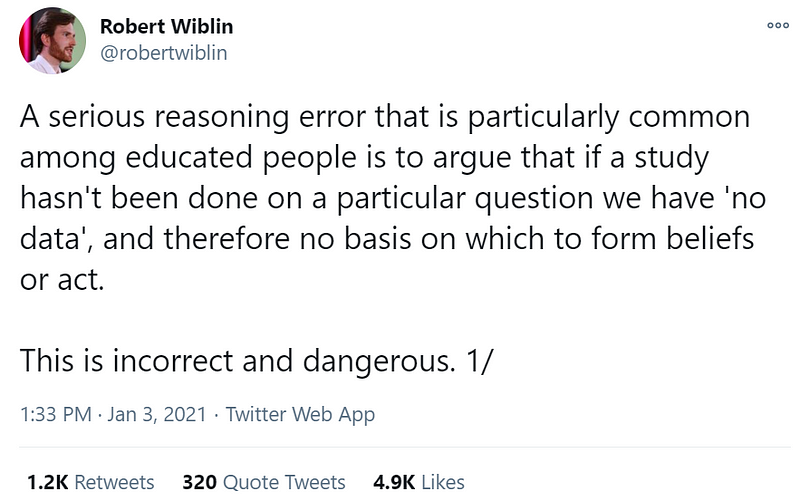
Greg Sargent
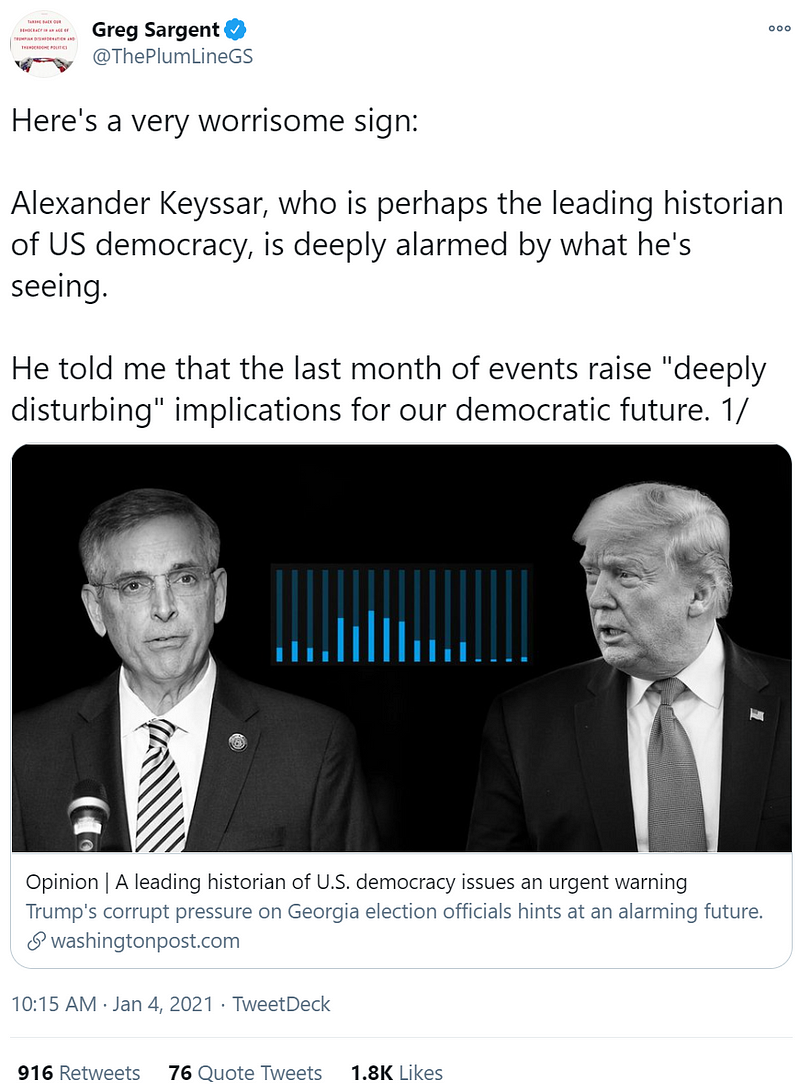
Noah Smith
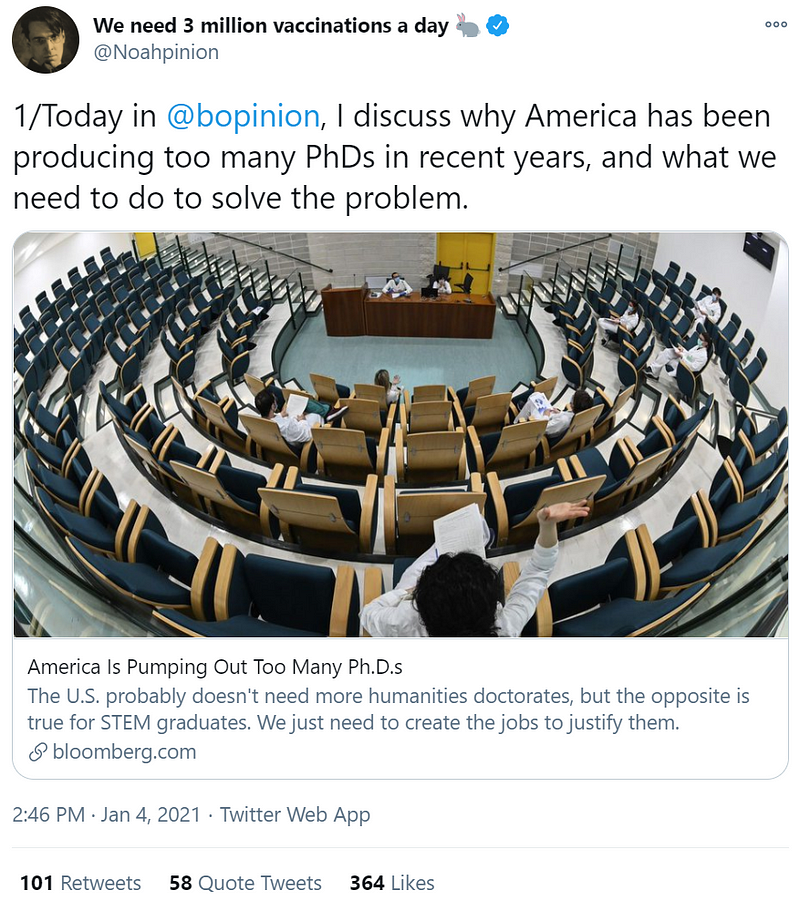
Mangy Jay
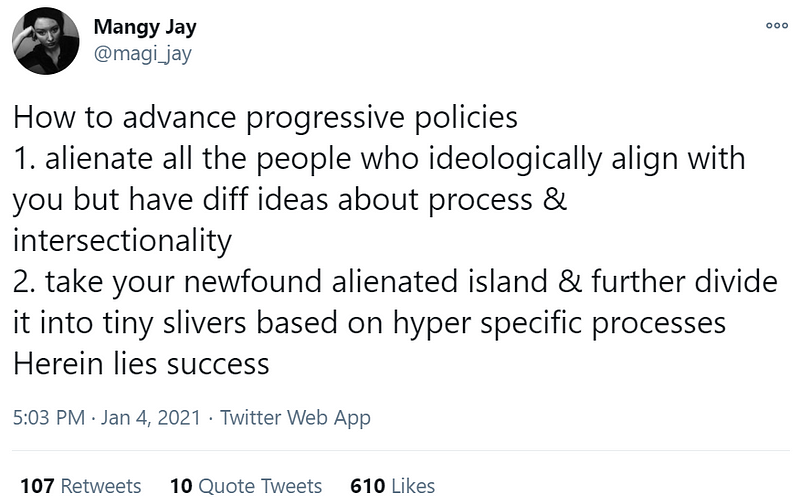
Audio & Visual
A selection of significant news clips.
Joe Biden Faces Multiple Domestic Crises (Financial Times)
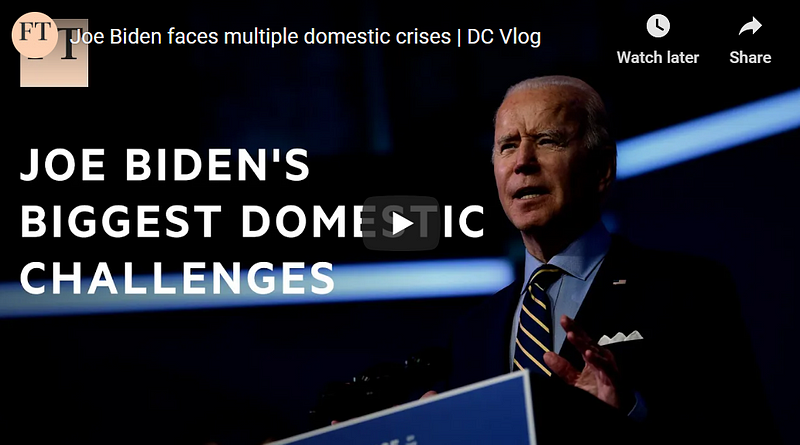
Experts Fear Spike of Coronavirus Cases After the Holidays (CBS)

Bill Gates: How to Fund the Green Revolution (The Economist)
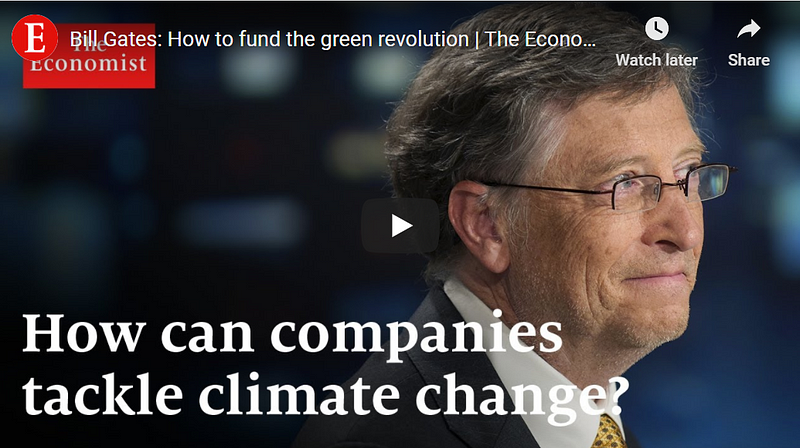
What Drug Warriors Got Wrong About the Opioid Epidemic (Reason)
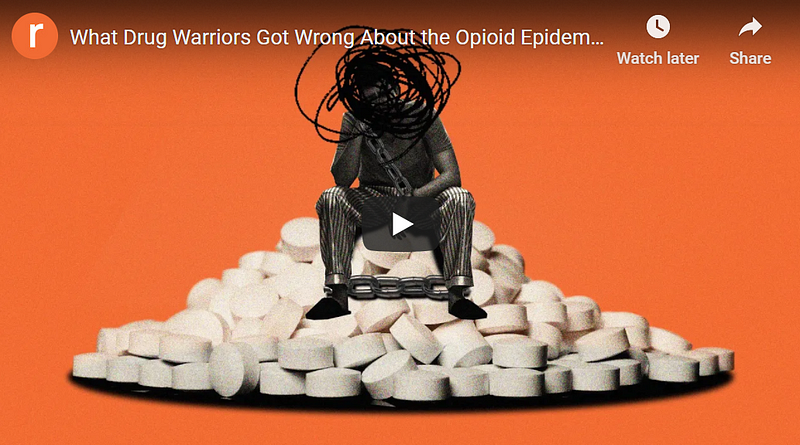
Links
A roundup of compelling recent reads:
Why I Hope the Republicans Lose in Georgia by Ross Douthat in The New York Times on 1/5/21
The scenario of a Trump-dominated future is being shaped by figures like Josh Hawley and Ted Cruz, who are increasingly aligning themselves with Trump's narrative. However, this trend may lead to their own political stagnation.
Worse Than Treason by Tom Nichols in The Atlantic on 1/4/21
Ignoring the facts and rationalizing actions, members of the Republican Party are advocating for the dismantling of democratic processes, leading to a significant threat against the integrity of elections.
How Could She Not Know? by Kat Rosenfield in Arc Digital on 1/5/21
This perspective raises the question of whether growth and understanding are fixed states or ongoing journeys, particularly in the context of moral and ethical development.
Another ‘Perfect’ Phone Call by Michael Brendan Dougherty in National Review on 1/5/21
It’s crucial to recognize that the Trump administration has exhausted its legal avenues for contesting election outcomes, leading to frustrations among its supporters.
Thanks for reading,
Berny Belvedere
Editor-in-Chief, Arc Digital
Chapter 2: The State of the Nation
On January 5, 2021, the nation was in a state of flux.
The first video reflects on the significant events leading up to and following January 6, providing a comprehensive overview of the political climate at that time.
The second video captures President Biden commemorating the anniversary of January 6, emphasizing the importance of democracy in his campaign speech.